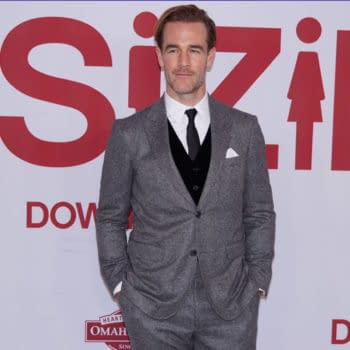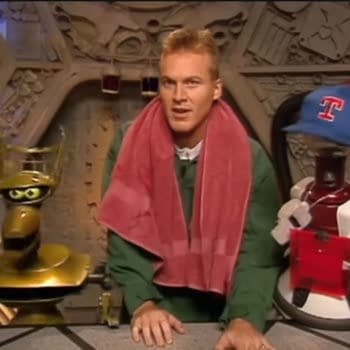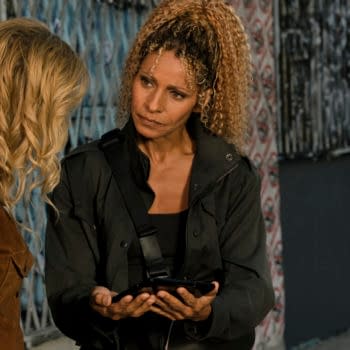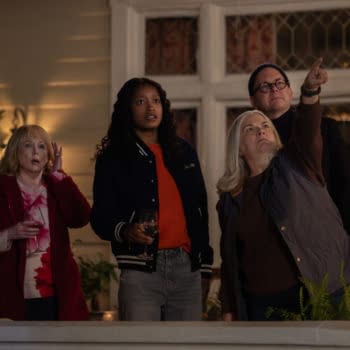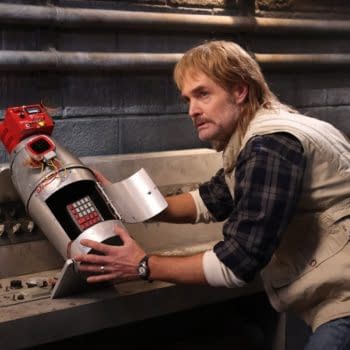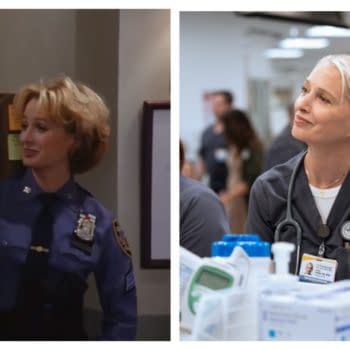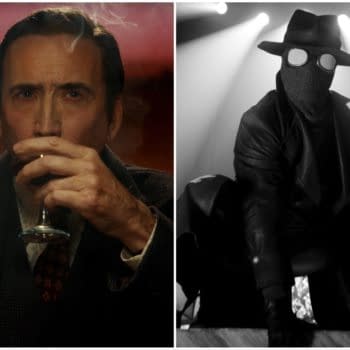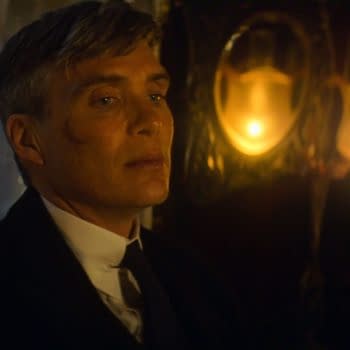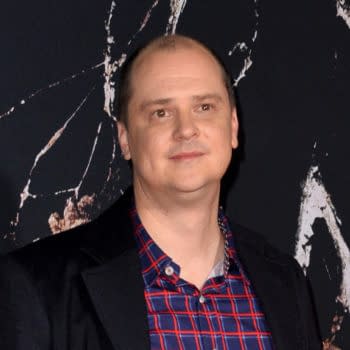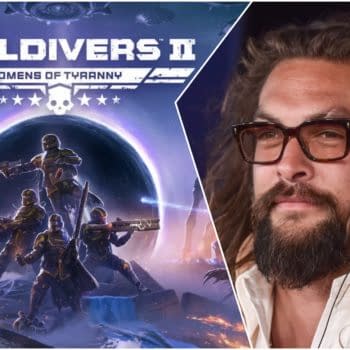Posted in: Exclusive, IFC, Interview, Movies | Tagged: Bob Ross, Brit McAdams, Ciara Renee, exclusive, interview, Michaela Watkins, owen wilson, Paint, Stephen Root, the joy of painting, Wendy McLendon-Covey
Paint Director Brit McAdams on Creating Owen Wilson's Anti-Bob Ross
Writer & director Brit McAdams talks to Bleeding Cool about his dramedy for IFC Films' Paint starring Owen Wilson & Bob Ross-inspired story.
As much as millions adored the late PBS personality and painter Bob Ross through his program The Joy of Painting, it also inspired filmmaker and writer Brit McAdams to provide the reference for Owen Wilson's Carl Nargle. While both host painting programs on their local PBS stations and sport a signature afro, the similarities end there as McAdams' directorial feature debut in IFC Films' Paint is a journey of self-discovery and maturity. The film follows Carl as Vermont's #1 public television painter who is convinced he has it all: a signature perm, custom van, and fans hanging on his every stroke… until a younger, better artist steals everything (and everyone) he loves. McAdams spoke to Bleeding Cool about growing up watching Ross, how he had no intention of telling Ross' story in Carl's journey, casting, and why the film resonated with Wilson.
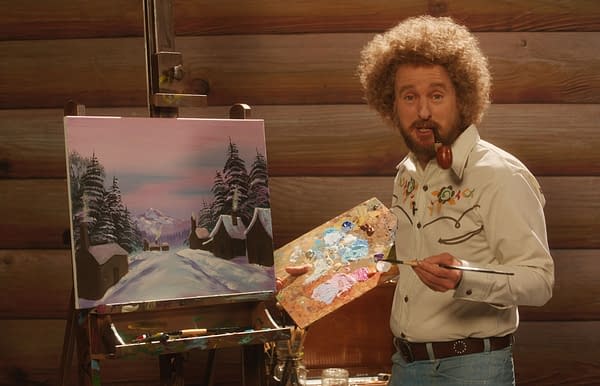
Bringing 'Paint's' Carl Nargle to Life
Bleeding Cool: What's the inspiration behind 'Paint?'
McAdams: As a kid, we weren't allowed to watch TV. My mom and older sister would watch 'General Hospital' every day. I'm old enough that my family was cheap enough where we didn't have a remote control. I would sit by the TV, and there was a dial-up above the TV to control the channel. When 'General Hospital' is over, there will be this moment in time when you can keep the TV on. As a kid, nothing was more important than that. I would turn the knob, and using it felt like a ticking time bomb of waiting for homework. With each click of the knob, you'd go to a different channel.
All of a sudden, there would be Bob Ross painting on PBS. My mom, sister and I would ask, "Who's this guy with the hair, whispering, and all this stuff?" Suddenly, this brushstroke of brown paint would become a branch, a tree, then a forest, and a mountainscape. We would go from, "Who is this guy?" to being transfixed by his power over us, creating this incredible world out of nothing, and it would be the most peaceful place in the world. We'd all be so quiet, and suddenly, this remarkable painting and world that he created would be done. The show would end, the world would get loud, and you'd have to go back to homework in this whole other world.
I marveled at who this person was and the power he had over all of us. I always thought of him as "This has to be the nicest person in the world" and loved any time we saw him. As I got older, I thought about the idea, "What if a person like him wasn't the nicest on earth? And what if he didn't use that power that he had over us for good? What would that world be like if that's who he was?" That's the genesis of Carl Nargle, played by Owen Wilson, someone who has this power over people and, in a lot of ways, is trapped in the past because he's been a rock star since he was 22. He's had the number one painting show on PBS, Burlington, for 22 years. He's got this power over all these people in his world who adore him, and with this success, would he ever evolve beyond who he was as a kid? If he didn't, what would his world look like, and how would he not fit in our current world?
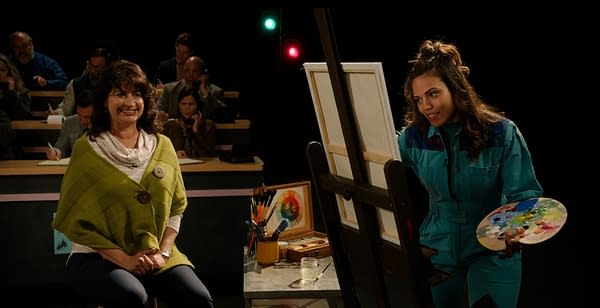
There are similarities between Carl and Bob's stories with the introduction of a rival painter with a different but similar TV show. Was 'Paint' always conceived as it was how it came out, or was there another instance you talked to the Ross family where you direct adopted Bob's life to a biopic?
Not at all. I purposely really tried to keep this as far away from Bob Ross as possible. I know so many people who adore him, and I'm including myself. I wanted this to be a clear break from him—Carl Nargle's his own man, for better or worse. No part of me wanted to sort of sully any of the Bob Ross world. He is the pure character of my childhood. Carl's his own man trapped at a PBS station in Burlington, Vermont.
What made Owen so ideal in the role of Carl?
In many ways, Owen has been around people who have a similar arc to Carl Nargle. He was incredibly successful as a young person with 'Bottle Rocket' (1996), his Wes Anderson films, and then his career took off. He's had a long time in the spotlight and really appreciates what that can do to someone and how that can affect their life. He has a unique perspective on this film that I certainly don't have or could never have. It's too late for me, but he knows how easy it is to lose track of the world and anything that isn't related to you in the world having this rock star life.
The script resonated with him for that reason. If you were a star as a kid, can you evolve beyond that? Another thing for Owen is that his mom is an artist and photographer, and his dad ran a PBS station in Dallas and was the first person to bring 'Monty Python' to the U.S. It's a combination there. You get an artist and a PBS station in there. You also get comedy from his parents. The script resonated with him on many levels because it was a world he'd grown up around. PBS and art are linked to his family. Also, this is Carl Nargle's world of his life, starting in his twenties to now.
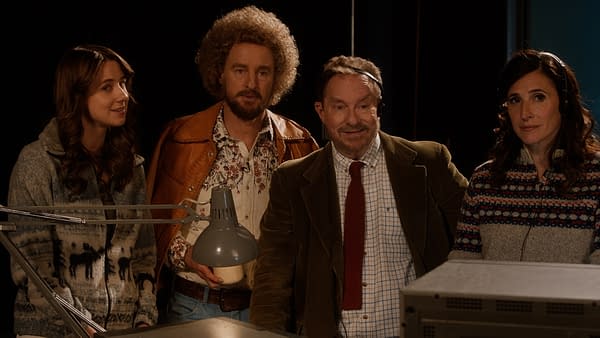
How did the rest of the cast come together, like Wendy [McLendon-Covey], Stephen [Root], Michaela [Watkins], and Ciara [Renée]?
It came in various ways. Becca Dealey, the casting director in New York, is a genius. I brought many people to me and said, "I think we can get this person, which is between Wendy, Michaela, and Stephen." We're not a big film, so anytime you can get that level of quality in talent, it's an absolute gift. Ciara Renée is a huge Broadway star. She's been the lead in 'Waitress,' 'Frozen,' and 'Wicked,' and she's a remarkable performer. If you want a showstopping moment on set with a crew, have her belt out something, it's incredible the chops she has in every part of life. She's so funny, not to mention a good singer and performer.
Lucy Freyer, who plays Jenna, is another one who auditioned. She has a Juilliard background and is going to be an absolute star. This is her first real part. When people audition, you're often like, "Does this script work? What's wrong with it? It's not funny or good." Lucy came in and auditioned, and you're like, "That's it, like that." There is this relief of all these fears assuaged where someone's so good and gets it. They came from every which way, but we were lucky to have all of them in their inspiring performances. Luck is the theme of this film, and we were lucky to get these people in front and behind the camera. The cast and crew were amazing in this film.
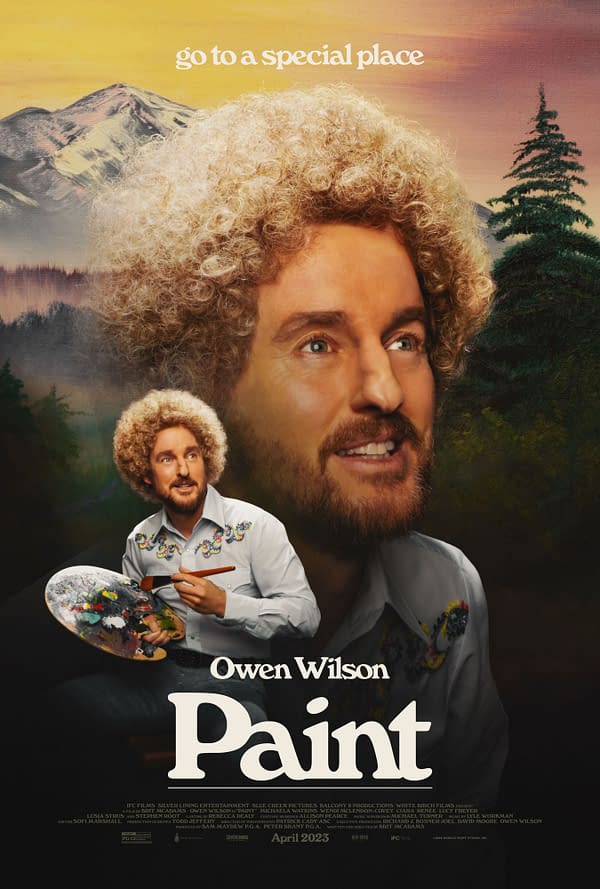
How has your prior directing experience helped you in your feature debut?
I've been directing for a long time, so I've done a lot of commercials and live specials. I've done a thing with Katt Williams, I've done some shorts that have gotten attention, and a documentary that Patrick Cady, who's the incredible DP on this, who's a director on his own. He and I shot a documentary called 'Trivia Town' 15 years ago. From that, I learned never to shoot 450 hours worth of footage for anything because turning that into an hour and a half will cost you a couple of years of your life.
Where I learned the most in the whole world was I grew up; I did promos in my 20s, and promos are a terrible place where you learn a lot about people because you're asking people to promote their shows, and a lot of them don't want to. You learn about doing anything to get a shot, and I don't mean that badly; I don't mean where you're reckless, but it throws pride out the window, and as long as you can get what you need, you're in good shape.
If someone's horrible, then you have a great story about it. That is, in many ways appreciating that the most important thing is working with nice people anytime you can and doing anything you can to get the best version of whatever you need without ego involved. If you can get rid of ego along the way and combine those things, we have people working for a common goal who are nice people. You can do something spectacular. I'd say more so than anything, the trials and tribulations of being treated horribly while shooting promos taught me the most.
Paint is available in theaters.






